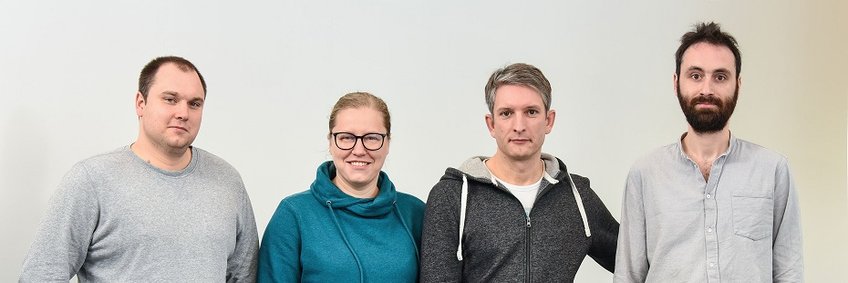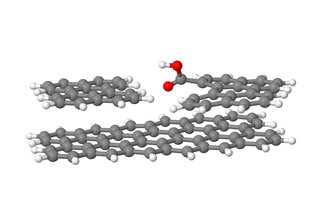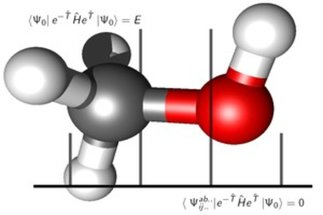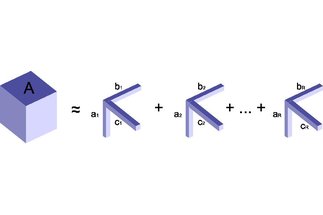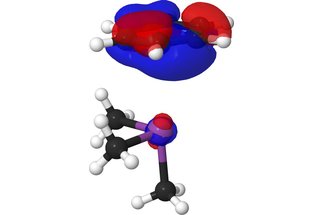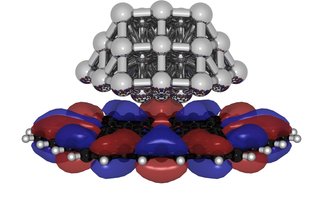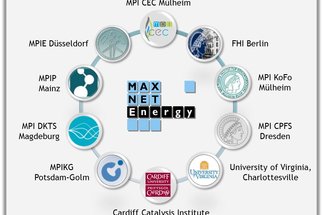Theoretical Methods and Heterogeneous Reactions
The work in my group covers a broad spectrum from method development, the calculation of molecular properties in spectroscopy up to modelling heterogeneous reactions, for example in electrocatalysis. In the work on algorithms, the group is embedded in the ORCA development efforts, while in method development we focus on novel schemes for solving the FCI problem or grand canonical approaches for applying DFT in electrochemistry. Applications cover intermolecular interactions, NMR spectroscopy, the description of nanoparticles on surfaces up to properties and processes in materials science and electrochemistry.
There are a few aspects that I find important when working in computational and theoretical chemistry like the close collaboration with experimentalists in application projects or the profound knowledge of the underlying theory and experience in method development when applying electronic structure methods to problems in chemistry.
Research Topics:
Applying electronic structure theory in materials sciences is a challenging task, as molecular structures or an accurate description of the relevant details of the system are often unknown or poorly characterized. Hence, the task for theory is often to assess whether a hypothesis is plausible or which factors might influence a given property or phenomenon. While this seldomly...
[more]
The accurate prediction of chemical shifts using computational methods is a powerful tool that can be applied to supplement experiments in several areas of chemistry. While, for example, the typical error of SCF 13C chemical shift calculations are about 5-10 ppm, correlated methods...,
[more]
Tensor decomposition techniques are omnipresent in quantum chemistry - this starts from the RI approximation or Cholesky decomposition to approaches like Laplace-transform MP2 up to DMRG. In the framework of this project, the potential of tensor decomposition methods...
[more]
Within the framework of the SPP 1807 "Control of London dispersion interactions in molecular chemistry" our group works on heavy main group elements as dispersion energy donors in inter - and intramolecular interactions. The joined project with Prof. M. Mehring's group at the TU Chemnitz focuses on the rich phenomenology of heavy main group atom interactions in coordination and supramolecular chemistry. While the coordination group in Chemnitz synthesizes...
[more]
To produce electric energy from the reaction of Oxygen with Hydrogen, proton exchange membranes fuel cells (PEMFC) represent a key technology. The most important part of these devices is the catalyst. In practice, Pt nanoparticles on a carbon support are used to catalyse the Oxygen Reduction Reaction (ORR). While durable and efficient solutions...
[more]
Our group participates in the MAXNET Energy research initiative and Alexander Auer is the research coordinator of the compound project. For details see the MAXNET Energy homepage.
[more]
News:
The latest edition of the Bunsen Magazine was curated by Professor Alexander Auer
more
Parahydrogen-enhanced magnetic resonance spectroscopy visualizes the process of [Fe]-hydrogenase catalysis
more
Chemists at the institute do not always work in the lab, sometimes mainly on the computer - like Xin Gui from the Department of Molecular Theory and Spectroscopy.
more
Introductory talk and presentation of new features on July 1st and 2nd
more
Show more
